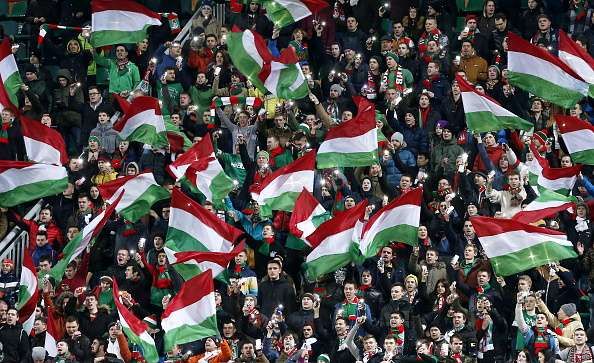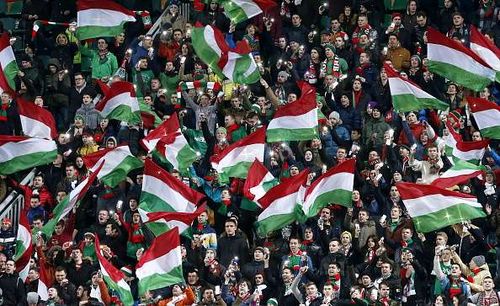
Russian clubs set to emerge from winter hibernation

On Saturday, the Russian Premier League awakes after its three-month winter hibernation. The clubs have been careful with their money in the break, spending just 18 million euros combined to strengthen their squads.
The problem is mostly due to the plunge in the rouble since a December 2014 meltdown in confidence in the central bank as well as Western sanctions over Russia's involvement in the Ukraine crisis.
More than a year on, the rouble's woes show no sign of abating and are affecting all aspects of Russian life - including football.
While this winter's Russian Premier League spending is well up from the meagre 5 million euros the 16 clubs spent last year, it marks a heavy fall from the record 112 million euros spent in the 2013 winter break and even the 39 million spent in 2014.
Lokomotiv Moscow made the most expensive signing of the winter break, spending 5 million euros on 22-year-old Ezekiel Henty from Slovenia's Olimpija Ljubljana. But the Railwaymen more than covered their costs for the Nigerian forward by selling Senegalese forward Baye Oumar Niasse to Everton for 17.7 million euros.
Teams looking for bargains
Given the financial climate, however, clubs have generally been looking to sign free agents whose contracts are about to expire as they can be bought for cut-down prices. Some teams are also looking further afield for players from lesser-known leagues such as Albania, Kazakhstan and Iran.
Reigning champions Zenit St Petersburg, who are through to the last 16 of the Champions League, snapped up Russian internationals Yuri Zhirkov and Alexander Kokorin from Dynamo Moscow for a mere 2.5 million euros combined.
Current league leaders CSKA Moscow are finding money particularly tight though, due to the cost of their new stadium, which is set to open in the summer. Head coach Leonid Slutskiy strengthened his squad by bringing in Kuban Krasnodar's Sergei Tkachev and Russia captain Roman Shirokov - both free agents.
According to CSKA president Evgeni Giner, Shirokov will be earning a quarter of his income at Spartak Moscow, receiving 300,000-350,000 euros until the end of the season.
Defending the club's longer-term finances remains important even in hard times, though - Giner said CSKA had rejected an offer from Leicester City for Ahmed Musa for 22 million euros.
"If we were to sell Musa now, we would receive a lot of money, but then again we may not qualify for the Champions League and we would not get any money from this," the CSKA president said in an interview with the newspaper Sport Express.
"One of the things I can do is count money. It will be another question to see what offers come in during the summer."
A Ukrainian in Krasnodar
One of the most surprising transfers during the winter break was that of Yevhen Seleznyov to Kuban Krasnodar. The 30-year-old, who has won 46 caps for Ukraine, joined from Dnipro Dnipropetrovsk, who were finalists in last season's Europa League.
His decision to move to Russia did not go down well at home, with his teammate in the Ukrainian national team Andriy Yarmolenko of Dynamo Kyiv saying he would never move to a Russian club.
Relations between the two countries hit rock bottom in 2014 after the unrest in Ukraine that toppled president Viktor Yanukovich and Russia's subsequent annexing of Crimea. Kyiv also believes Russia is backing rebels in the Donetsk and Luhansk regions.
"I have never mixed sport and politics," Seleznyov told Sport Express when discussing his move.
"Maybe someone has called me a traitor - I don't know. However, I have not betrayed anyone. I was honest in front of everyone. I came to play football here, in order to help my national team in the future."